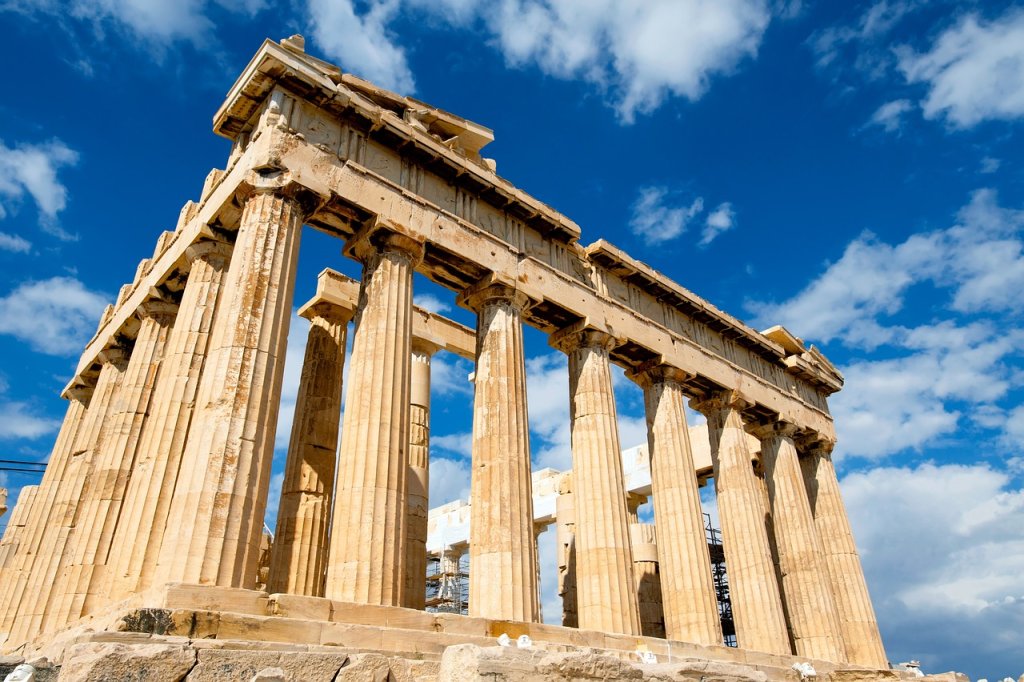
The Greek parliamentary elections of the 21st of May were the first half of a match that is expected to end on the 25th of June when a second election is scheduled to be held. The result of the May elections and the call for new ones are indeed flabbergasting and confusing for anyone that follows Greek politics from a distance. While the ruling New Democracy Party won the election with a surprising 20-point advantage over SYRIZA, the main opposition party, it could not win an outright majority in Parliament and the Prime Minister, Kyriakos Mitsotakis called for a second general election.
This was a scenario long in the making as the SYRIZA-led government led by Alexis Tsipras (September 2015-July 2019) voted an electoral law in 2016 based on a party-list proportional representation system, under which a single-party parliamentary majority could only be achieved with a vote share of at least 45%, thus leading to coalition governments. By supporting this law, SYRIZA abolished the reinforced proportional system which had been in effect since 2004. The law could not be applied in the next election, as it failed to be voted in by a two thirds majority. The New Democracy government that came to power in July 2019 under the old law, changed the electoral law again to a reinforced proportional system which would only come into effect in subsequent elections. Thus, the May 2023 legislative elections were held under the SYRIZA-favored electoral law which led to New Democracy’s victory with a 40,79% share of the vote and 146 seats in Parliament, short of the 151 seats need to hold a single party majority.
SYRIZA received a 20.07% share of the vote, down 11.46% from the 2019 elections while PASOK, the third placed party received 11.46% of the vote. While the extent of New Democracy’s victory was unexpected, its first-place finish was anticipated as it had led in all public opinion polls during the course of its four-year mandate. Also foreseen was the need for a second election as SYRIZA had been unable to convince either New Democracy or other possible partners for the need of a coalition government after the elections. In fact, voters seemed in part to punish SYRIZA as it viewed SYRIZA’s electoral gimmicks as related more to its attempts to come back to power rather than advancing the cause of the country.
In fact, the May 2023 elections can be considered to be the most consequential elections of the last fifteen years as they seem to indicate a return to growth and stability since the start of the 2008 economic crisis and the subsequent implementation of austerity measures. How the Mitsotakis government handled the Covid-19 crisis, the impact of the war in Ukraine and its effect on rising energy costs and inflation in general, and growing tensions with Turkey both at the land border in Spring 2020 and in the Eastern Mediterranean in late Summer/Fall later that year should also be factored in to explain the election results. Voters rewarded it for prioritizing growth, making appropriate use of European funds to subsidize some of the rising costs of living to consumers, raising the minimum wage and pensions, increasing the inflow of foreign investments to the country, and creating a sense of stability and optimism for the future. The next big mantra is the granting of investment grade status to the Greek economy by major credit agencies and readjusting public sector salaries. In other words, the perceived return to “normalcy” coupled with the perception that Kyriakos Mitsotakis and his government have a plan for the future explain to a great extent the vote of confidence he received in the May election.
The fact that Greece’s deadliest train disaster in its history on 28 February this year did not essentially dent New Democracy’s popularity. This was an indication of the priorities of Greek voters. In fact, given the choice of which party to support to reform the clientelist public sector which received a large part of the blame for the train crash. Thus, the Mitsotakis government was deemed as the lesser evil.
Undoubtedly, national security also played a big role in the attitudes of the voters with the government’s handling of the repeated crises with Turkey, the slowdown in the inflow of illegal immigration both overland (with the construction of a wall along a large section of the Greek-Turkish border) and at sea with increased border patrols and the input of FRONTEX. Also relevant were the upgrading of Greece’s relations with the United States, the targeted policy of investing in the county’s armed forces after a decade of minimal spending due to austerity measures in place, the improvement of the country’s civil protection mechanism (in tandem with the EU’s civil protection initiatives) to deal with natural disasters associated with the global climate crisis, among others.
The enhanced threat perception emanating from Turkey tends to keep both citizens and governments on edge, and this has paradoxically contributed to the attempts to focus on the effective governance and management of state institutions. It is interesting to note that the coincidence of Greece’s electoral cycle with Turkey’s has contributed to the choices of voters as well as to the composition of the current appointed interim government that handles the fate of the country until the 25 June elections. Apart from appointing one of Greece’s most senior and experienced diplomats to head the Foreign Ministry, four ministers – the Minister of National Defense, the Minister of Citizen Protection, the Minister of Shipping and Island Policy, and the Minister of Climate Change and Civil Protection — are former high ranking and respected military men. The intention is clearly one of having experienced technocrats with the authority at the helm of some of the most crucial ministries to handle national security emergencies.
As Turkey finally concluded its elections with the reelection of Recep Tayyip Erdoğan as the country’s President on 28 May and the appointment of a new cabinet a few days later, there is certain wariness in Athens regarding the new government in Ankara and its intentions. Albeit the fact that the former Defense Minister, Hulusi Akar announced in early April that he expects a ‘moratorium’ with Greece in military and air force exercises in the Aegean Sea to hold between 15 June and 15 September. Over the last few days, two incidents, inter alia, have raised alarm bells. The first has to do with the collision of two cargo ships with Singapore and Vanuatu flags respectively but both with a majority of Turkish crew members, off the island of Chios where the Greek authorities immediately launched a search and rescue operation since the area where the collision occurred is under its jurisdiction. The non-acceptance of the Greek efforts by the Turkish captains of both ships led to a standstill for a while until the issue was resolved. The second is the ongoing marked increased pressure by illegal immigrants trying to cross the border at different points into Greece as part of a seemingly organized campaign on behalf of the Turkish authorities.
Hence, relations with Turkey will be high on the agenda of many of the political parties. As Greece approaches the 25 June elections, in particular the New Democracy party which projects itself as the most able to ensure the country’s continued stability. The naming of the new revamped Turkish cabinet has heightened the anxiety in Athens as the new cabinet from the government formed after the Greek elections will have to establish a new working relationship with the Turkish side as well as gauge whether the post-electoral period in both countries justifies the assessment by many in Athens that the conditions for a new round of dialogue and trust-building between the two countries are ripe.
Hence, both citizens and political elites look forward to an end of the electoral cycle and its almost certain result that Kyriakos Mitsotakis will lead a New Democracy government into a phase of continued stability and growth. It remains to be seen whether a combination of voter fatigue and the very possible entry of several smaller parties into parliament (given the low 3% threshold) will put a damper into the next government’s stability and ability to pursue its agenda at a time of continued regional and international flux.
[A further assessment of the post-25 June election context and what it implies for Greece’s relations with Turkey will follow in early July]

Dimitrios Triantaphyllou is Professor of International Politics at the Panteion University of Social and Political Sciences, Athens and Professor of International Relations at Kadir Has University, Istanbul. He holds a BA in Political Science and History from the University of California, Berkeley and an MA and PhD in International Relations from the Fletcher School of Law and Diplomacy, Tufts University. He has previously served in various capacities in several research and academic institutions such as the Center for International and European Studies (CIES), Istanbul; the Hellenic Foundation for European and Foreign Policy (ELIAMEP), Athens; the EU Institute for Security Studies (EUISS), Paris; the Hellenic Observatory at the London School of Economics; the University of the Aegean, Rhodes; and the International Center for Black Sea Studies (ICBSS). Athens. He also served as an advisor at the Hellenic Ministry for Foreign Affairs. He is an editor of Southeast European and Black Sea Studies (SSCI indexed) and a member of the Greek-Turkish Forum. His more recent applied and research interests include Turkish Foreign Policy; Black Sea Security and Politics; EU foreign and neighbourhood policies; Greek-Turkish relations; and Politics in the Eastern Mediterranean. He is also actively engaged in several non-formal education initiatives promoting civic engagement and youth empowerment
To cite this work: Dimitrios Triantaphyllou, “The Ongoing Greek Electoral Cycle”, Panorama, Online, 16 June 2023, https://www.uikpanorama.com/blog/2023/06/16/dt/
Copyright@UIKPanorama. All on-line and print rights reserved. Opinions expressed in works published by the Panorama belongs to the authors alone unless otherwise stated, and do not imply endorsement by the IRCT, Global Academy, or the Editors/Editorial Board of Panorama.



